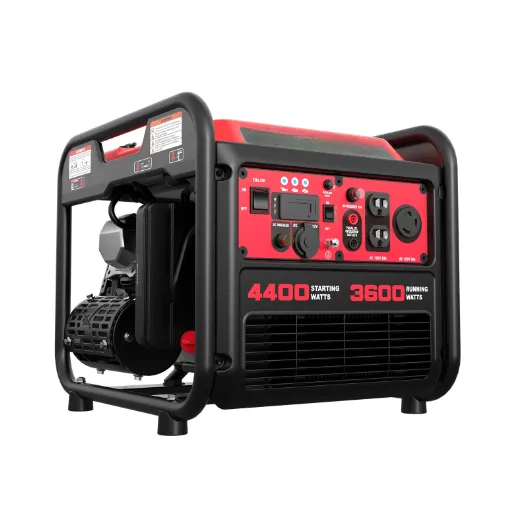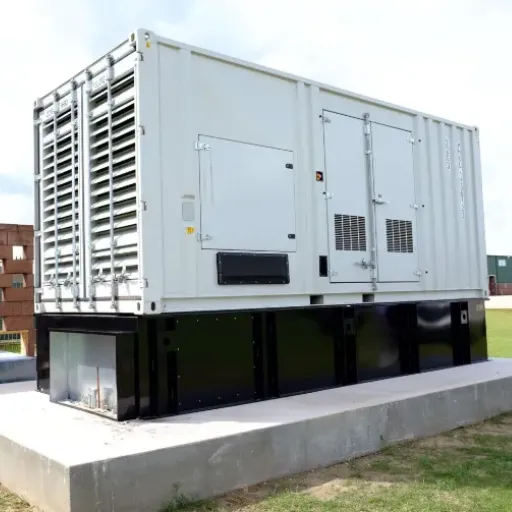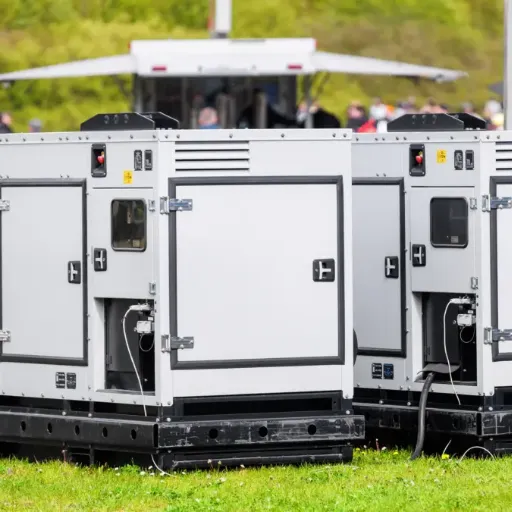When there is an outage in power systems, a home standby generator becomes a lifesaver, ensuring that a few essential appliances continue to run in the event of an unexpected power loss. Before purchasing a generator, it’s beneficial to understand the various fuel types used by these systems and how to determine which one is best suited for your needs. This guide will outline the standard fuel options available for home standby generators, their advantages and disadvantages, and the key factors to consider when selecting between them. Whether you consider fuel types based on efficiency, reliability, or convenience, the key is to ensure that your generator has been fueled adequately so that it can power all the essentials in your home during an emergency.
Understanding Generator Fuel Types
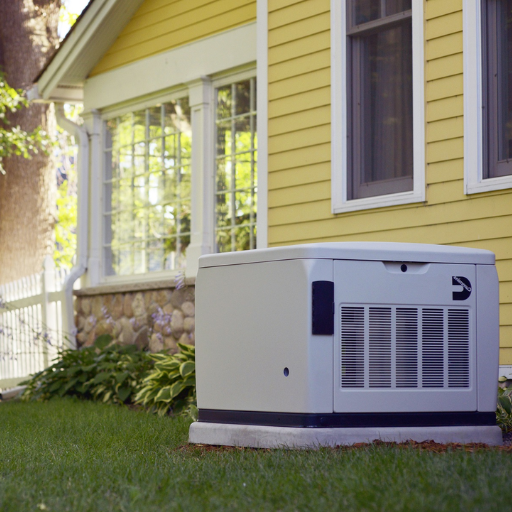
- Gasoline
Gasoline is readily available almost everywhere and easy to store, making it a convenient option for homeowners to consider. It is less efficient than most other fuels, has a shorter shelf life, and is probably not recommended for long-duration emergency use.
- Propane
Propane is a clean-burning fuel that can be stored for extended periods without degradation. Propane can offer great service in those areas where gasoline is hardly accessible; however, propane users need to bear in mind that a propane tank’s storage and higher initial costs are associated with it.
- Natural Gas
Then, if generating with natural gas, the continuous supply of fuel via your household gas lines needs no refueling. And that is the point: If the utility company is stopped for whatever reason, you lose your fuel supply. Hence, they will usually not be suitable in areas where gas service interruptions are considered the norm.
- Diesel
Diesel is very effective, making it a popular choice of fuel for larger generators. It is much better than gasoline in terms of fuel economy; however, proper storage is required because it can deteriorate over time. That is for those who consider reliability and long-term functionality.
By comparing availability, cost, and storage requirements, you can choose the fuel that best suits your home and regional conditions.
Overview of Generator Fuel Options
Depending on the factors discussed earlier, the generator fuel type needs to be selected based on the availability of fuel, cost, efficiency, environmental impact, and storage considerations. Here’s an up-to-date explanation of the same according to the latest data:
- Gasoline
Being one of the readily available fuels, it is another option for small and portable generators. Gasoline typically has a shelf life of only three to six months when not treated with chemicals known as stabilizers. Gasoline has an energy output of approximately 120,286 British Thermal Units (BTUs) per gallon of fuel. Additionally, gasoline’s extreme flammability makes it even more valuable due to its limited supply during widespread blackouts or earthquakes.
- Diesel
Diesel fuel provides a higher-energy output than gasoline. This fuel, with 137,381 BTUs per gallon, is highly reliable and efficient. Because it is less flammable and offers better fuel economy to bigger and bulkier generators, it is apt for industrial or mass usage. It becomes of utmost importance to store diesel fuel properly, as it may become contaminated, both theoretically and with bacteria, due to moisture. Price-wise, Diesel does vary but mostly stays economical compared to other liquids.
- Propane
There are several advantages of propane, including a long shelf life and clean combustion. It emits fewer emissions during combustion compared to gasoline and diesel, and is therefore less harmful to the environment. The trade-off is the output: approximately 91,330 BTUs per gallon, which is lower than that of gasoline or diesel. Special storage tanks are required for a living room, which may add to the installation costs. Propane is often the preferred fuel for residential standby generators because it is available in both liquid and gaseous forms.
- Natural Gas
Being a relatively inexpensive fuel in the absence of other losses, natural gas has more advantages for consumers when transported through underground pipelines, as it is not discounted in the circuits connected to the natural gas grid in these areas. It is a clean source that burns in the region, consuming around 1,030 BTUs per cubic foot. Therefore, it undeniably depends upon the infrastructure; the supply could halt due to natural disruptions or stoppage of service for any extraordinary reason. It is a preferred choice for large whole-house generators in urban or suburban installations.
- Solar (Alternative)
Solar power is increasingly popular as an eco-friendly and renewable energy resource for generators. Solar generators do not rely on fuel at all: They convert sunlight into electricity via photovoltaic cells. However, in terms of practical application, they are hindered by their dependence on bright sunlight and produce less power than most other options. Days with dark clouds require additional battery storage units, which will impact the startup cost.
Key Considerations & Latest Updates
- Cost Trends:
- As of 2023, in the USA, a gas price can be averaged at about $3.80 per gallon, with the diesel price being about $4.50 per gallon. Propane costs about $2.69 per gallon, but prices vary by region.
- Solar options are expensive upfront but help to cut down on energy costs in the long run.
- Emission Impact:
- Propane and natural gas emit 20-30% less greenhouse gases than diesel, according to the EPA.
- Solar generators emit no emissions, making them the most environmentally friendly option.
- Usage Patterns:
- Gasoline and diesel are good for portability and very short-term use.
- Propane and natural gas are best for big, stationary systems.
- Solar generators are ideal for environmentally conscious individuals or areas with consistent sunlight throughout the year.
In analyzing the barriers and benefits of each fuel type and associated costs, one can best make a great decision to suit his energy needs.
Importance of Choosing the Right Fuel Type
Choosing the right type of fuel is very crucial for making the utmost use of efficiency, cost, and environmental responsibility. Therefore, every fuel has its unique characteristics that make it suitable for use in specific scenarios. Below are the five essential reasons detailing why the right fuel type should be selected:
- Energy Efficiency
Different types of fuel release various amounts of energy per unit. A good example is gasoline, which has an energy density of approximately 33.7 megajoules per liter, and diesel, with an energy density of around 35.8 megajoules per liter. This makes diesel more efficient for heavy-duty purposes.
- Environmental Impact
Fuel-type-dependent emissions of greenhouse gases occur. Solar-powered systems emit negligible quantities during operation, while gasoline and diesel use emit substantial amounts of CO2, which is a major contributor to global warming. Propane burns cleaner than gasoline or diesel, therefore making it a greener alternative.
- Cost and Availability
The prices of fuels can vary. Gasoline and diesel are the most commonly used fuels and traditionally be very cheap; however, nowadays, these prices are always going up due to escalating international market conditions. Solar energy is comparatively expensive in the first place yet acts as a solution for big savings later in time. Natural gas is relatively inexpensive in certain parts of the country where supply is abundant.
- Application Specificity
A usage scenario specifies the best fuel type. Portable systems commonly use gasoline for their portability; stable options like propane, natural gas, or solar energy are better suited for stationary systems.
- Storage and Safety
Storage capability differs from one fuel to another. Gasoline and diesel require careful handling because of their flammability and limited shelf life. Propane offers safer storage with a lower risk of spillage, while solar energy has no concern for storage, as it harnesses sunlight directly.
By considering these factors, one can make informed decisions that align with energy needs, operational goals, and environmental priorities.
Common Generator Fuel Types Explained
|
Fuel Type |
Advantages |
Disadvantages |
Best Use |
|---|---|---|---|
|
Gasoline |
Easy to obtain, portable, and simple use |
Highly flammable, short shelf life |
Portable, small generators |
|
Diesel |
Efficient, durable, long engine life |
Noisy, emits more pollutants |
Commercial, industrial backup |
|
Natural Gas |
Clean-burning, continuous supply |
Needs pipeline, unavailable in disasters |
Stationary, critical operations |
|
Propane |
Clean, long shelf life, portable |
High consumption, costly installation |
Remote sites, residential backup |
|
Biodiesel |
Renewable, reduces emissions |
Limited availability, storage challenges |
Eco-friendly applications |
Natural Gas Standby Generators
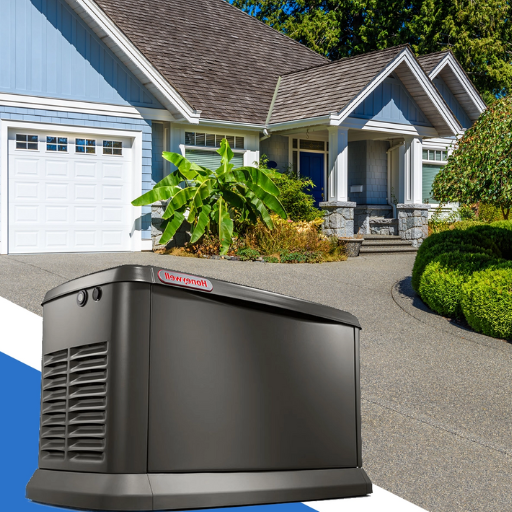
Backup power systems, such as natural gas generators, could be an efficient and reliable choice. They tie directly into the natural gas supply, so a shut-off situation need never be a problem for the availability of fuel; there’s simply no refueling involved. These generators have a reputation for being more environmentally friendly than their diesel or petrol counterparts. Hence, they are an environmentally-friendly choice. Furthermore, since they operate consistently and maintain uninterrupted long-term power, natural gas stand-by generators can be used for residential, commercial, and industrial needs.
Advantages of Natural Gas Generators
|
Key Point |
Details |
|---|---|
|
Clean Energy |
Produces fewer emissions than other fuels |
|
Continuous Supply |
Connected to pipelines, no refueling needed |
|
Cost-Effective |
Lower operational costs over time |
|
Reliable Performance |
Suitable for critical operations |
|
Low Maintenance |
Requires less upkeep than diesel engines |
|
Quiet Operation |
Generates less noise during use |
|
Environmentally Friendly |
Reduces carbon footprint significantly |
|
No Storage Needed |
Eliminates fuel storage requirements |
|
Efficient Combustion |
High energy output with minimal waste |
|
Widely Available |
Accessible in urban and suburban areas |
Installation Considerations for Natural Gas
|
Key Point |
Details |
|---|---|
|
Site Selection |
Choose a stable, well-drained location |
|
Clearance Requirements |
Maintain 5 ft from windows, 3 ft from walls |
|
Fuel Line Connection |
Ensure proper pipe size and regulator |
|
Ventilation |
Allow adequate airflow for cooling |
|
Exhaust Safety |
Direct exhaust away from openings |
|
Permits and Codes |
Follow local building and safety codes |
|
Foundation |
Use a concrete pad or a gravel base |
|
Professional Installation |
Hire licensed electricians and plumbers |
|
Testing |
Simulate an outage to verify functionality |
|
Maintenance Access |
Ensure easy access for servicing |
Performance During Power Outages
Natural gas systems ensure a steady energy supply during prolonged power outages at all levels, including residential, commercial, and industrial. In diesel-powered applications, refueling is part of the maintenance routine, alongside on-site fuel storage. As natural gas generators are connected to utility pipelines, they are at a lower risk of running out of fuel during long-duration outages, as gas supply disruptions remain unlikely.
According to a 2023 study by the U.S. Department of Energy, natural gas pipelines are operationally reliable over 99.99% of the time, offering promise as a source of energy during extreme weather events. In conjunction with modern technological advances in generation, gas systems can efficiently deliver steady power with fewer emissions. For instance, new gas generators can achieve approximately a 45% efficiency in converting fuel to electricity, which is higher than many traditional diesel generators.
Besides being a suitable alternative during emergencies, natural gas emits up to 27% less carbon dioxide than diesel, according to estimates by the EPA. This makes it a welcome option for anyone seeking to reduce their carbon footprint without compromising energy security. Natural gas-powered systems, therefore, are sustainable, efficient, and offer uninterrupted performance during power outages, enabling them to meet demand in critical situations without compromise.
Propane as a Fuel Source
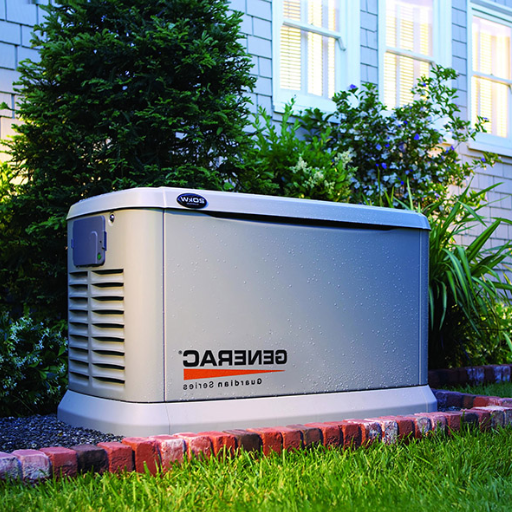
For heating, cooking, and powering generators, its fuel is a substitute for propane. It is an environmentally cleaner fuel that produces fewer greenhouse gas emissions than gasoline or diesel. Additionally, the shelf life of propane is longer, making it a preferable choice for an emergency backup system. As this fuel is plentiful and stores easy, it is released to mix space heating and energy use in residential, commercial, or industrial areas.
Benefits of Using Propane for Generators
- Clean Energy
Being a clean-burning fuel, propane is blamed for much less pollution compared to gasoline or diesel. According to the U.S. Environmental Protection Agency, generators fueled by propane produce 50% less carbon monoxide and particulate matter, making them an environmentally friendly choice.
- Reliable During Emergencies
Propane has an indefinite shelf life, unlike gasoline, which degrades over time. In such cases, particularly when power is out for extended periods, propane-powered generators are activated and ready for use.
Storage and Availability of Propane
Proper storage of propane is crucial for both safety and convenience. Propane is typically stored in pressurized tanks or cylinders, which maintain the gas in a liquid form. These tanks come in various sizes, ranging from small, portable cylinders to large bulk storage tanks that are often used in both residential and commercial applications. According to the Propane Education & Research Council, propane tanks should always be stored in a well-ventilated area, away from direct sunlight, heat, and any potential ignition sources. This is to lessen the risk.
With more than 56,000 spots offering refills or tank exchanges just across the United States, the availability of propane is relatively widespread. It has been reported that approximately 50 million American homes utilize propane in some form, whether for heating, cooking, or as an alternative energy source for generators. While propane is a fossil fuel, it’s recovered as a by-product during the processing of natural gas and oil refining, thus ensuring a steady supply chain. Additionally, from a logistics standpoint, newer methods of transportation ensure the continuous delivery of propane into even the most remote terrains, making it a highly accessible and dependable energy source for most regions.
Together, these factors explain why propane remains a convenient, reliable, and versatile energy option for personal and industrial use.
Comparing Propane to Other Fuel Types
|
Parameter |
Propane |
Diesel |
Gasoline |
Natural Gas |
|---|---|---|---|---|
|
Fuel Availability |
Readily available, refillable |
Widely available, needs delivery |
Easily accessible, short supply in emergencies |
Continuous via pipeline |
|
Shelf Life |
Long, does not degrade |
18-24 months with additives |
Short, around 12 months |
Unlimited, no storage needed |
|
Environmental Impact |
Clean-burning, low emissions |
Higher emissions |
High emissions |
Clean-burning, low emissions |
|
Storage |
Requires pressurized tanks |
Requires large tanks |
Easy to store, flammable |
No storage required |
|
Cost |
Moderate, varies by location |
Moderate, depends on delivery |
High, fluctuates with demand |
Low, stable pricing |
|
Efficiency |
Moderate, higher consumption |
High efficient for extended use |
Low, less efficient |
Moderate, steady performance |
|
Safety |
Flammable, pressurized tanks |
Less flammable, safer to store |
Highly flammable |
Risk of leaks, explosive |
|
Cold Weather Performance |
May freeze in extreme cold |
Requires additives in cold |
Poor, forms gum deposits |
Excellent in cold climates |
|
Maintenance |
Low, clean-burning fuel |
Moderate, requires regular checks |
High, frequent refueling |
Moderate, regular inspections |
Diesel Fuel for Backup Generators
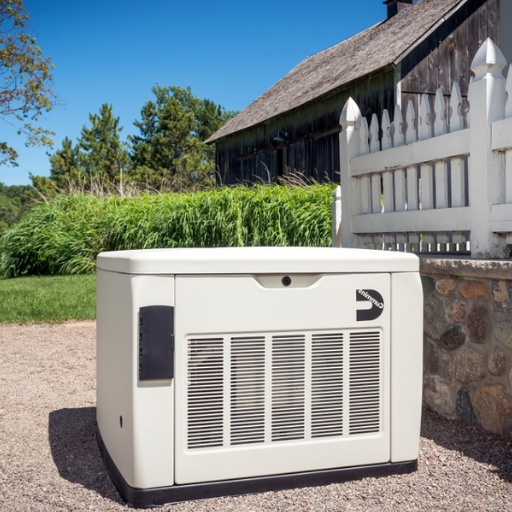
Diesel here is a perfect backup generator fuel because it is efficient and reliable. Diesel generators provide reliable backup power during outages and are often preferred due to their durability and ability to handle high loads. Diesel fuel has a long storage life if properly stored, so it remains usable in case of emergencies. However, diesel generators tend to have higher emissions compared with some alternatives, and they may have more expensive fuel prices. Otherwise, in many civilian, commercial, and industrial applications, it is considered a very dependable option for backup power.
Why Choose Diesel for Standby Power?
Due to reliability, efficiency, and excellent performance under taxing conditions, standby power continues to put diesel generators at the forefront. Recent data suggest that diesel engines can run for several hours with minimal maintenance, making them scarcely trainable. Depending on how well they have been maintained and specific operating conditions, they generally last between 20,000 and 30,000 hours before a significant overhaul is required.
Fuel efficiency is one reason why these generators hold their consideration. Diesel engines use significantly less fuel compared to gasoline engines, primarily due to two factors: their higher compression ratio and the higher energy density of diesel fuel. Diesel fuel contains approximately 12 percent more energy per gallon than gasoline, resulting in lower operating expenses over a longer period of use.
Additionally, there is a reduction in emissions resulting from the evolution of diesel generator technology. Modern engine truck units are often manufactured to comply with stringent environmental regulations, such as the U.S. EPA Tier 4 standards. The various improvements, from DPFs (diesel particulate filter) to SCR (selective catalytic reduction) systems, were designed to reduce pollutants such as NOx and particulate matter.
The reliability of diesel fuel is another major factor, as it can remain stable for 12 months or more when storage is executed correctly and individual additives are mixed into the fuel. Such storage conditions are crucial for standby power systems, which must come on during unscheduled outages. Furthermore, diesel generators can react and come under load faster and presently perform heavy load duties better than many other solutions. This specification is critically essential in emergencies such as hospitals, data centers, and industrial facilities, where a power failure will prove hugely detrimental.
Globally, the market for diesel generators is expected to experience steady growth, with several studies indicating that the compound annual growth rate (CAGR) may hover around 5-6% for the period from 2023 to 2030. This steady interest is a testament to the unwavering trust placed in diesel as a reliable backup power source for both residential and small businesses.
Combining durability, economy, and ever-changing technology, diesel generators remain the most popular option for anyone seeking reliable standby power.
Maintenance Requirements for Diesel Generators
Diesel generators require regular maintenance to ensure they operate efficiently and reliably over time. Below are five major maintenance activities necessary for the upkeep of diesel generators, and which save performance and life:
- Changing Oil regularly
A diesel engine requires periodic oil changes to ensure that all components are lubricated and run smoothly. Depending on the model and manufacturer specifications of the generator, the oil should be changed every 100 to 250 hours of operation.
- Checking the Cooling System
Check against a checklist: fluid levels and potential leakage. Flush and change coolant at regular intervals, i.e., every 1,000 hours of operation or as directed by the manufacturer.
- Fuel System
Diesel fuel may deteriorate if stored for an extended period, potentially clogging filters and reducing its efficiency. Clean or replace fuel filters every 250 to 500 hours, ensuring the fuel tank is free from contaminants for optimal performance.
- Battery Maintenance
The generator’s batteries should be tested regularly to ensure they remain charged and ready for immediate use. Regular checks for corrosion of battery terminals, cleaning of contacts, and replacement of batteries every 2-3 years or when necessary must be carried out.
- Air Filter Change
A dirty air filter blocks the air supply, thereby reducing engine efficiency. Inspect the air filter and clean or replace it every 500 hours, or more frequently if the generator operates in a dusty environment.
In this way, the operation of diesel generators will reduce spontaneous failures and increase longevity.
Cost Analysis of Diesel Fuel
Several factors, including crude oil prices, refining costs, distribution and marketing expenses, and taxes, determine diesel fuel costs. There is a wide price variance caused by location, seasonal demand, and even world economic conditions.
According to recent data (October 2023), the average price of diesel in the United States is approximately $4.50 per gallon. It varies from state to state, ranging from as low as $3.90 in some states to as high as $5.00 in others. Globally, diesel is usually priced higher in Europe, where taxes are much higher than in the U.S., averaging €1.80/liter (approximately $7.25 per gallon).
Diesel fuel constitutes a significant cost factor for diesel generator operators. A diesel price of $4.50 and fuel consumption of 0.5 gallons per hour result in an operating cost of $2.25 per hour of generator operation. If the diesel generator runs for 8 hours a day, this translates to $18.00 per day or approximately $540.00 per month, assuming continuous running for 30 days. These amounts can scale costs very quickly if used in industrial quantities or for more extended working hours at remote locations.
Monitoring market conditions for price trends and seeking bulk purchase discounts helps develop effective strategies to reduce costs. Moreover, the use of an efficiently maintained generator and a fuel-efficient model will steer the project further towards sustainability and economy.
Tri-Fuel Generators
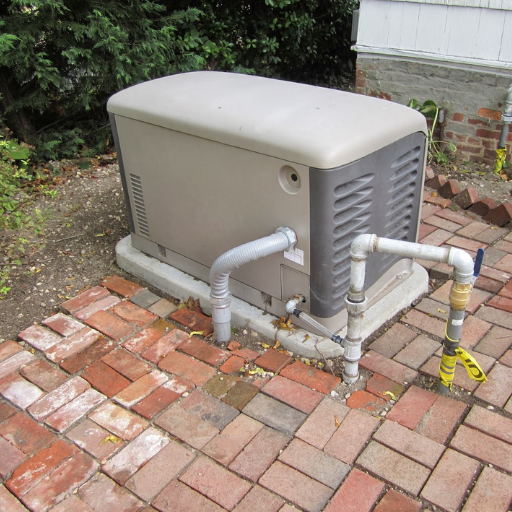
Tri-fuel generators are highly versatile, operating on three different fuel sources: gasoline, propane, and natural gas. This flexibility enables users to choose the option that is most convenient or economical, considering fuel availability and current market prices. In the event of an emergency or remote locations with limited access to a particular fuel, the unit proves helpful. The ability to switch fuel types between operations is a primary factor in their nonstop operation, which means they are better suited for users, both residential and commercial.
What are Tri-Fuel Generators?
Tri-fuel generators are highly versatile power-producing systems that can utilize gasoline, propane, or natural gas to generate electricity, offering flexibility, reliability, and efficiency in various situations.
Flexibility and Benefits of Tri-Fuel Options
The tri-fuel generator offers several key advantages, enabling a reliable power solution in various situations. Having the option to select between fuel types provides a considerable advantage in terms of convenience and efficiency, especially when there is uncertainty about fuel availability. Here are five significant benefits and features concerning tri-fuel options:
- Versatile Fuel Sources
A tri-fuel generator can utilize gasoline, propane, or natural gas, offering users more options for fuel, depending on availability and cost.
- Improved Reliability During Emergencies
Sometimes, during a power outage or natural disaster, access to one type of fuel may be limited. Considering fuel switching capabilities ensures that the generator operates continuously.
- Cost-Efficiency
Users can always select the most cost-effective fuel option based on market prices at the time of use, which helps keep operational costs down. Propane, for instance, is typically cheaper and more storable than gasoline.
- Green Choices
Using propane or natural gas significantly reduces emissions compared to gasoline, making these generators a more environmentally friendly option.
- Longer Runtime Flexibility
These fuel options enable users to extend generator runtime by switching fuel types, rather than relying on a single fuel source. This is particularly valuable in instances where the generator is to be used over an extended period.
The synergy of all these benefits makes the tri-fuel generators a highly versatile and practical solution for day-to-day use and emergency preparedness.
Choosing a Tri-Fuel Generator for Whole-House Use
Selecting one tri-fuel generator for whole-house backup power is all about power output, fuel consumption, and the capability to power specific household loads. I want the wattage to be sufficient to run all the essential appliances I consider necessary, as well as those required by the systems. Additionally, I prefer a model with straightforward controls and safety options that include overload protection. Generator longevity and ease of maintenance are other factors I consider to ensure the generator yields maximum output when required in an emergency or during prolonged use.
References
-
A comparison of fuel choice for backup generators
This study examines fuel source security and the operational aspects of backup generators, offering insights into alternative fuel options such as natural gas and diesel.
Link to source -
Household resilience to disruption to power supply during storm events
This article examines household-level resilience and the role of generators during power outages, including considerations related to fuel.
Link to source -
Distributed generation: Induction and permanent magnet generators
This book provides detailed information on generator types and their fuel sources, including renewable energy, fossil fuels, and waste.
Link to source
Frequently Asked Questions (FAQ)
What fuel types do standby generators typically use?
Standby generators commonly run on natural gas, propane, or gasoline. Natural gas is a popular choice due to its availability and convenience; it connects directly to your home’s gas line. Propane generators are also standard as they can be stored in tanks, making them a reliable backup power source. Gasoline generators are portable and practical for smaller applications, but they may not be as convenient for whole-house power needs.
How does the type of fuel affect generator performance?
The type of fuel can significantly impact a generator’s performance, power output, and efficiency. Natural gas and propane are generally cleaner-burning fuels, producing fewer emissions compared to gasoline or diesel. Additionally, the availability of fuel can influence which generator is best suited for your needs, especially during emergencies when access to fuel may be limited.
What are the pros and cons of using propane as a fuel type for generators?
Propane is an excellent fuel because it is one of the cleanest-burning fuels available, producing fewer emissions compared to gasoline or diesel. It has a long shelf life, which makes it an ideal choice for emergency power situations. However, the cons include the need for a fuel supply tank, which requires regular refueling and maintenance. Additionally, propane may not be as readily available in all areas compared to natural gas.
Can home standby generators run on gasoline?
Yes, many portable generators run on gasoline. Gasoline generators are often used for temporary power needs and are easy to refuel. However, they may not be the best fit for whole-house applications due to the limited fuel supply and shorter shelf life. In contrast, natural gas and propane generators can provide more consistent power for extended periods.
What should I consider when choosing the best fuel type for my generator?
When selecting the best fuel type for your generator, consider factors such as fuel availability, storage capabilities, and your power needs. Evaluate the generator size required for your home and whether you prefer a stationary standby generator or a portable generator. Additionally, consider the environmental impact of each fuel type; for example, natural gas and propane are generally more environmentally friendly than gasoline or diesel.
How often do I need to perform generator maintenance for different types of fuel?
The frequency of generator maintenance can vary depending on the type of fuel used. Generators running on gasoline typically need more frequent maintenance due to fuel degradation over time. In contrast, natural gas and propane generators require less frequent servicing as they do not suffer from fuel degradation and have long shelf lives. Regular checks on spark plugs, fuel lines, and the overall health of the generator are crucial, regardless of the fuel type.
What is the difference between using natural gas and propane for generators?
Both natural gas and propane are viable fuel options for generators, but they have key differences. Natural gas is delivered through gas lines, providing a continuous fuel supply, whereas propane is stored in tanks that require periodic refilling. Propane is often considered the cleaner option, but natural gas typically has a lower cost. Your choice may depend on the availability of each fuel type in your area and your specific backup power requirements.
Are there any safety concerns associated with the types of generator fuel?
Yes, safety is an important consideration when using any type of fuel for generators. Gasoline can be volatile and poses a risk of fire or explosion if not handled properly. Propane and natural gas also have specific safety concerns, such as the potential for gas leaks. It is essential to follow manufacturer guidelines for storage, usage, and maintenance to reduce the risk of accidents and ensure safe operation.



